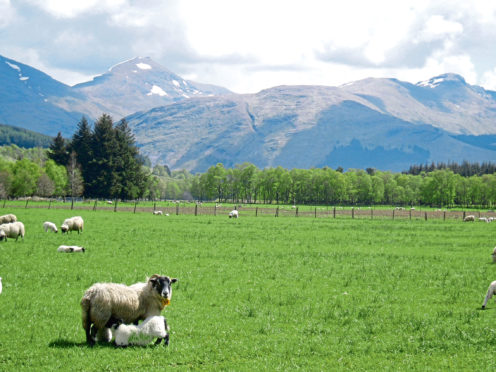Professor Davy McCracken of SRUC offers an insight into work at the rural college’s hill and mountain research centre
Like countless others across Scotland, myself and most of the team at Kirkton and Auchtertyre have had to adapt to the movement restrictions caused by the ongoing pandemic.
The vast majority of field-based research across Scotland has not been classed as essential by the government.
So we are all sitting out lockdown in our separate homes across Scotland – or in New Zealand, where one of the team was visiting friends when the travel restrictions kicked-in.
But although travel and face-to-face meetings have stopped, our work goes on through the use of emails, phone calls and online video conferences.
Some of that ongoing activity revolves around discussing with project partners and funders what alternatives can be put in place where planned experiments or events can no longer occur.
So instead of on-site workshops, we are looking to develop a “virtual tour” of the farms.
This would help, for example, to illustrate where different public goods are being produced across the farms and how the remote sensors we have in place are helping to provide data on those.
And normal day-to-day work also continues.
This includes working with project partners to finalise the grant agreements for a major new European project we are leading on, which will now be launched in the autumn.
Or pulling together another European consortium to develop and submit a proposal later in the summer to an AHDB (Agriculture and Horticulture Development Board) call for carcase quality research.
We are also working with SEFARI (Scottish Environment, Food and Agriculture Research Institutes) colleagues to help make existing educational activities and resources across those institutes more readily accessible online to primary and secondary school pupils and their teachers.
Of course, time and tide wait for no man, woman – or sheep.
And fortunately, farming and ensuring livestock health and welfare have been classed as essential activities.
So when you read this we – like many hill farms across Scotland – will be well into lambing of all the sheep on the farms.
Our farm-based shepherds – together with the one research technician who lives on-site – will therefore be catching, measuring, recording and tagging their lambs as soon as they have been born.
Such data allows us to know how well individual ewes and lambs go on to perform throughout the rest of the season.
But it also provides essential information to help inform management decisions on the farms later in the year.
